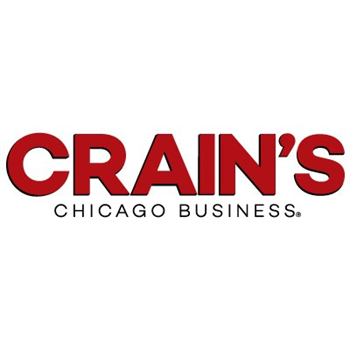There's a lot of news to keep up with right now. And as states begin to reopen, and Illinois inches towards the next phase of its own reopening, a question on everyone's minds is "how?" How will I get to work? How can I safely commute?
Our transportation team, in particular, has been in the media mix lately, on topics as varied as pop-up bike lanes to plummeting transit ridership. We've assembled a primer of recent transportation news that Audrey Wennink, MPC Director of Transporation, and Jeremy Glover, MPC Transportation Associate, have helped shape:
-
Just at the CTA, ridership is down 80%. When riders do return — and that process is expected to take much longer than how fast they fled — the experience is likely to be different.
- One way to encourage riders to use transit outside of rush hour is to charge lower fares during off-peak periods.
- Wennink said cities need to encourage biking. A new public scooter program, still being planned by the city, also could play a role, she said.
- “We don’t want this to be a turning point of more driving, and going backwards in terms of equity and safety and sustainability,” Wennink said.
-
“Over a quarter of Chicago households don’t own a car,” said Audrey Wennink, “we need to have a healthy transit system in this region because our city and our region and our businesses are built depending on that.”
- “This experience is definitely showing that transit is a social good, it’s a public good, it’s necessary for our society to keep functioning, so maybe we’re going to need to reevaluate those recovery ratios.”
-
While moving to rear-door boarding is “great for public safety in the immediate term," Audrey Wennink is hopeful that the program will stay in place “at a more substantial level when things get back to normal.”
- “In the future, the idea is that it would be able to help with crowded buses and long lines, which could have a significant impact” on bus service, Wennink said. “Right now, it’s solving a different problem, but [drivers] are getting experience with it, and moving the fare equipment to the back is certainly a step in the right direction.”
- Wennink pointed to San Francisco and New York City, where all-door boarding has been credited for reducing the time spent at stops.
-
Audrey Wennink has been urging the city to respond to the demand for increased safe pedestrian and cycling space, and she says she’s taking a long view of how the city can safely transition out of quarantine. “Metropolitan Planning Council is advocating for planning now to prepare us for the transportation transition out of the stay-at-home order,” she said via email. “We can expect that more people will want to bike or walk for transportation [as opposed to riding transit], to maintain physical distancing while traveling.”
- “And since the warm weather also encourages active modes, we’d hope to see the city implement ‘tactical urbanism’ type of improvements to upgrade the existing bike and pedestrian networks, like pop-up bike lanes and pedestrian paths in parking lanes,” Wennink added. “This could be complemented with some pop-up neighborhood greenways—closing local streets to through traffic [as in Oakland] and slowing traffic speeds to encourage biking and walking.”
-
Jeremy Glover, an expert at the Metropolitan Planning Council in the region’s myriad of transit networks, discussed the impact of the pandemic on the local transit systems, how their funding will be impacted long after the crisis ends, and why public transit networks are the backbone of the regional economy.
Did you see the latest Crain's Chicago Business Crains Forum on transportation? MPC was featured in three prominent articles discussing transportation in a post COVID-19 environment.

- The article displays a map where you can track how much transit ridership has decreased at your local CTA stop since March.
- Audrey Wennink notes that more than 50 percent of car trips in Chicago are shorter than three miles. Cold-weather European cities such as Copenhagen and Amsterdam have strong bike cultures. "You have to have protected, well-lit bike lanes that are plowed in the winter," she says.
- With less funding available, the transit agencies should re-evaluate their capital spending priorities so it's not the "same old, same old," Wennink says. For example, CTA buses traditionally board from the front but are now boarding from the back to protect drivers. But passengers are required to manually open the door from the outside since drivers can't open the door automatically. The drivers could use a button or switch to accomplish this, Wennink says.
- "Busy urban centers like ours can't function without transit," Wennink says. "If we cut and never replace service, then we're contracting ourselves for the long term, permanently constraining our economy."
- This great op-ed from Audrey details how our region can move forward from here. Audrey says that:
- 1. We need to build back a system that prioritizes the needs of riders who rely on transit.
- 2. We need to aggressively build trust as we rebuild our transit system.
- 3. We will need to develop new funding and operational structures.
The Chicago region's transportation network is one of our nation's most coveted and comprehensive. It's essential that we #BuildBackBetter as we ease back from COVID-19. Stay tuned!